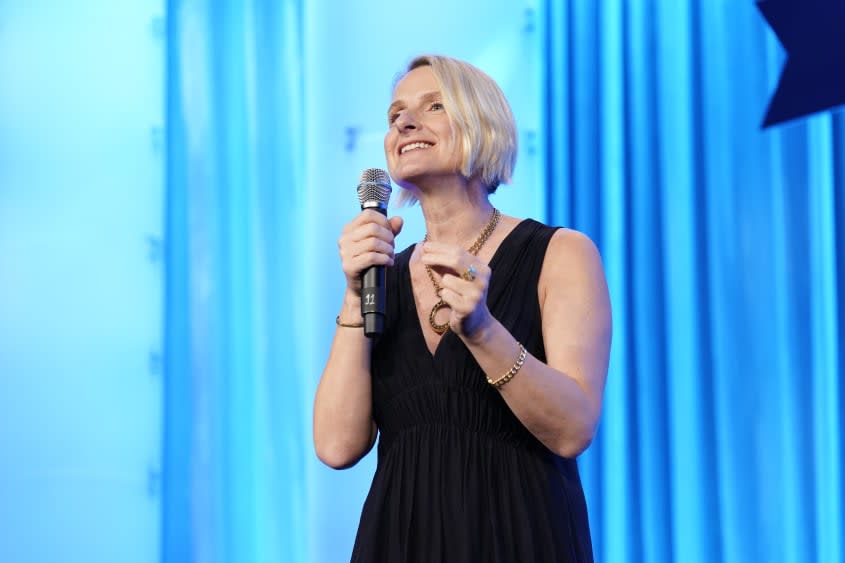Will Elizabeth Gilbert's decision set a 'dangerous precedent' for book censorship?

- Oops!Something went wrong.Please try again later.
Elizabeth Gilbert, the best-selling author "Eat, Pray, Love," decided to indefinitely pause publication of her latest novel, "The Snow Forest," after an "overwhelming" wave of criticism on social media and Goodreads from Ukranian readers. The backlash was triggered by the books setting in 20th-century Siberia, with many calling the author insensitive in light of the ongoing war between Russia and Ukraine.
"It is not the time for this book to be published," Gilbert said in a video posted on Twitter. She didn't want to "add any harm to a group of people who have already experienced and who are continuing to experience grievous and extreme harm."
Gilbert's decision was swiftly criticized by those who felt she gave in to the pressure to censor her book and sparked further debate about the impact of her actions.
Setting a bad precedent for authors
Gilbert's decision to pull her book from publication was "a wrongheaded attempt to help the Ukrainian cause," Franklin Foer opined in The Atlantic. Her reaction was "especially disappointing" because she fumbled an opportunity to "reshape the cultural front lines of this war" and "impose a bit of sanity." Instead, Gilbert set "a terrible precedent" by shelving her book. Instead of standing up for her work and the "importance of literature in a time of war," Gilbert "chose to abnegate her responsibilities as a writer and go another way: eat, pray, pander," Foer wrote.
The author's "self-cancellation sets a dangerous precedent for authors who lack her wealth, career stability and clout," Leigh Stein wrote in Unherd. By acquiescing to audience backlash, artists are putting their ability to earn a living on the line. Furthermore, if readers "can't stomach novels set in countries that have dark and ugly stains on their records," Stein quipped, "I have bad news for anyone writing fiction about America."
Gilbert should reconsider
It's "regrettable" that Gilbert delayed the publication of her book, even if her decision was "well-intended," PEN America CEO Suzanne Nossel said in a statement. "The publication of a novel set in Russia should not be cast as an act exacerbating oppression." Fiction and culture are essential to inspiring "mutual understanding and unleashing empathy," Nossel added. She hopes that Gilbert will reconsider and urges others to stand behind the original publication date and "the principle that literature and creativity must not become a casualty of war."
Not a big deal but hints at an "uncomfortable shift"
The indefinite postponement is "not a great travesty" but does reflect some "ill-judged thinking" about a novel's purpose and what that should look like, Imogen West-Knights wrote in Slate. The primary goal of a book shouldn't be to be "morally instructive." Besides, "simply being Russian is not morally wrong." Gilbert's choice illustrated an "uncomfortable shift" within literary circles — "a babying of readers that they themselves are participating in," she concluded.
You may also like
Why Republicans are trying to make Trump's trial about Hillary Clinton
Researchers say they created first synthetic human embryo model
Southern Baptists expel Saddleback, 2nd church over female pastors, approve further clampdown

